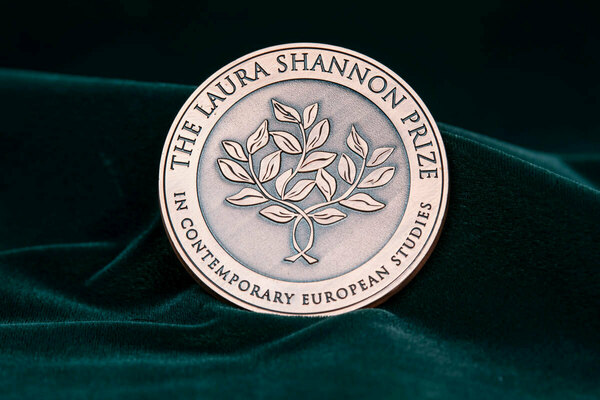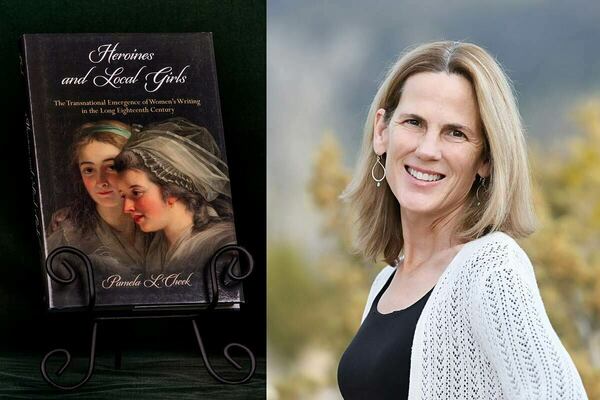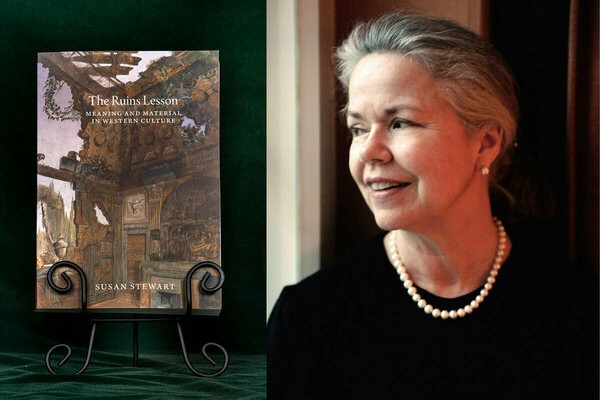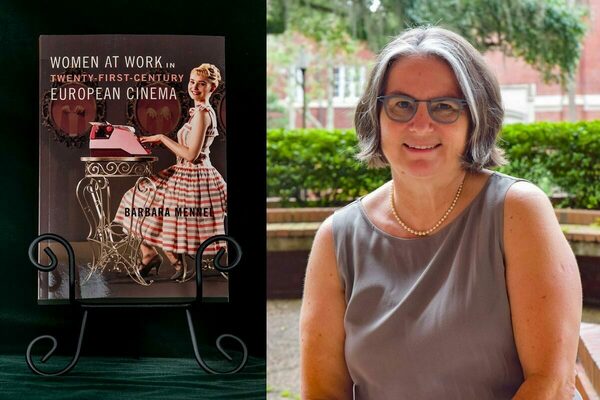
The Nanovic Institute for European Studies at the University of Notre Dame has awarded the 2022 Laura Shannon Prize in Contemporary European Studies to Pamela L. Cheek, professor of French and comparative literature at the University of New Mexico, for her book “Heroines and Local Girls: The Transnational Emergence of Women’s Writing in the Long Eighteenth Century,” published by the University of Pennsylvania Press.
The $10,000 Laura Shannon Prize, one of the preeminent prizes for European studies, is awarded each year to the best book that transcends a focus on any one country, state, or people to stimulate new ways of thinking about contemporary Europe as a whole. This year’s cycle of the award considered books in the humanities published in 2019 or 2020.
In its statement, the final jury praised Cheek’s work for its rigor, ambition and craft:
“Pamela L. Cheek’s meticulously researched book on the evolution of European women’s writing into a distinct body of literature represents a ground-breaking contribution to the history of women’s writing and reading. In this geographically and intellectually ambitious work, Cheek deftly traces the development of transnational ‘ideational’ and actual communities of writing—and, importantly, reading—women, examining the networks and reciprocal influences of women authors and readers located in France, Germany, Holland and England.

Cheek moves effortlessly from compelling close readings of important individual female-authored works—whether by Françoise de Graffigny or Frances Burney—to adopting a more collective, comparative overview of women’s writing. She analyzes the interplay between aesthetic and commercial concerns that helped facilitate the burgeoning international circulation of female-authored texts in the European literary marketplace and women’s self-positioning within it. What was it about a literary text and its female protagonist(s) that made the individual (local) reader feel a principally gendered affiliation with its content, rather than one based on nationality or social class? During the long 18th century, women often had to look beyond their own national borders to find other female kindred spirits; the translation of works, many by women, allowed them to do this, transcending local cultural and linguistic specificities and forging a sense of transnational and transformative identity, and thus of gendered community. This ‘horizontal,’ egalitarian European sisterhood, Cheek argues, contrasts with a more ‘vertical’ masculine lineage of exceptional men influencing successive generations.
A remarkably wide-ranging and scholarly account of the consolidation of women’s writing as a transnational category of literature, ‘Heroines and Local Girls’ is an indispensable reference point for writers and readers interested in reception politics, literary history and women’s writing.”
The final jury also awarded a Laura Shannon Prize Silver Medal, which carries a monetary prize, to Susan Stewart, the Avalon Foundation University Professor in the Humanities and professor of English at Princeton University, for “The Ruins Lesson: Meaning and Material in Western Culture,” published by the University of Chicago Press. Commending Stewart’s expansive study of material culture, the final jury wrote:

“A fascinating and exceptionally erudite investigation of the cultural meaning of ancient ruins in Western culture, ‘The Ruins Lesson’ considers a wide range of places, times, artifacts, personal objects, religious practices and artistic forms ranging from architecture to visual art (printmaking and painting) to poetry. Susan Stewart, a much-respected literary critic, here turns her attention to the material realm. She surveys the physical and visible remains from antiquity, in order to consider the ways these ruins came to represent the high achievements of past civilizations and how artists and writers came to imagine them as both compelling and problematic insofar as they embody a narrative of decay as well as one of lost grandeur.
Stewart proves a discerning guide to the meanings of architectural ruins and their literary and pictorial histories, and her treatment of monuments and memorials as both expressions and reflections on how to think about history and material remains is timely: ‘If we can commit ourselves to judging together, out of the vast raw material of human achievement and errors, what is ethical and worthwhile, beautiful and good, useful and true, the fragility of materials is inconsequential’ (269). In addition to the work’s stunning intellectual breadth and scope, the author’s elegant and evocative prose contributes to its overall beauty.”
Finally, the jury gave an Honorable Mention to Barbara Mennel, the Rothman Chair and Director of the Center for the Humanities and the Public Sphere and professor of film studies and German studies at the University of Florida, for her book “Women at Work in Twenty-First-Century European Cinema,” published by the University of Illinois Press. In its statement, the final jury praised Mennel’s groundbreaking work:

“Ranging across both arthouse and popular films from nearly two dozen European countries, Barbara Mennel’s ‘Women at Work’ illuminates the diverse representations of women’s labor in twenty-first century European cinema. This groundbreaking book embeds culture-specific approaches to working women within the broader contexts of global financial crises, neoliberal capitalism, precarity, migration and the ethics and economics of biotechnology. Admirably attentive to the diversity of European feminisms and cinematic idioms, Mennel explores both the transcending of female stereotypes and their durability. Many films she examines show how female economic empowerment often rests on the exploited domestic and reproductive labor of migrant women. A captivating overview of current European cinema, ‘Women at Work’ offers timely and discerning insight into the evolving meanings of feminism in contemporary Europe on both sides of the former Iron Curtain.”
The 2022 prize jury was composed of an accomplished group of scholars from across the humanities: Edyta Bojanowska, professor of Slavic languages and literatures and chair of the European Studies Council at Yale University’s MacMillan Center; Stephen M. Fallon, the Rev. John J. Cavanaugh, C.S.C., Professor of the Humanities at the University of Notre Dame; Robin Jensen, the Patrick O’Brien Professor of Theology at the University of Notre Dame; Siobhán McIlvanney, professor of French and Francophone women’s writing at King’s College London; and, Lenart Škof, professor of philosophy and religion and head of the Institute for Philosophical Studies at Science and Research Center Koper (ZRS Koper), Slovenia.
Now in its 13th year, the Laura Shannon Prize is made possible through a generous endowment from Laura Shannon (1939-2021) and her husband, Michael, class of ’58. Laura Shannon became a member of the Nanovic Institute’s advisory board in 2003 and served for many years. As well as her work in social services and family court mediation, she was a regular visitor to Europe, particularly to France where she honed her language skills and explored libraries and cultural centers. Claire Shannon Kelly is carrying on her parents’ legacy as a member of the institute’s advisory board.
The Laura Shannon Prize is now accepting nominations for its 2023 prize in history and the social sciences. European studies books published in 2020 or 2021 are eligible, with nominations due Feb 15.
The Nanovic Institute seeks to enrich the intellectual culture of Notre Dame by creating an integrated, interdisciplinary home for students, faculty, and visiting scholars to explore the evolving ideas, cultures, traditions, beliefs, moral challenges and institutions that shape Europe. The institute is an integral part of Notre Dame’s Keough School of Global Affairs. For additional information about the Nanovic Institute and the Laura Shannon Prize, visit nanovic.nd.edu/prize.